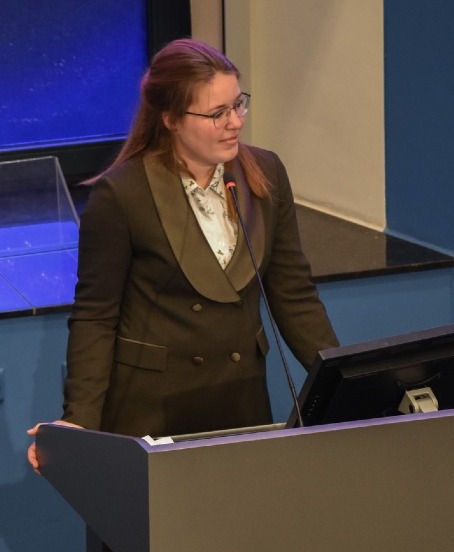Doodsoorzaken ontrafeld: van doktersbriefje naar dataset
De belangrijkste doodsoorzaak in het afgelopen jaar was dementie (*) Maar hoe zat dat in de negentiende en begin twintigste eeuw? Onderzoekers aan de Radboud Universiteit, de Rijksuniversiteit Groningen en Universiteit Leiden startten een project om deze gegevens boven tafel te krijgen. De data die het project oplevert zijn voor iedereen beschikbaar en kunnen worden gebruikt voor onderzoek naar bijvoorbeeld epidemieën. Vanuit de Faculteit der Letteren is dr. Mayra Murkens bij het project betrokken.

Het centrale platform van het project is Doodsoorzaken.nl. Naast een beschrijving van het project kunnen belangstellenden hier ook terecht voor achtergronden en voorbeelden van al ingevoerde gegevens van historische doodsoorzaken-registers en doodsbriefjes.
Ontrafel de geschiedenis van ziekten en epidemieën
Belangrijk aan dit project is dat de data na invoering ook weer openbaar zal worden. De datasets blijven niet in handen van onderzoekers alleen, maar zullen via de archieven ook beschikbaar zijn voor geïnteresseerden en familie-historici.
Het academisch onderzoek dat hiermee gedaan kan worden, kan bijvoorbeeld naar sociale ongelijkheid in sterfte kijken. Ook wordt onderzoek naar de geschiedenis van ziekten en epidemieën makkelijker. Bovendien kan er zo een beter beeld ontstaan van sterftepatronen in meerdere regio’s in Nederland. Daarnaast kunnen amateurhistorici met de data aan de slag. Zij kunnen zo nog meer informatie over hun eigen stamboom verkrijgen, met als belangrijkste element de doodsoorzaak van hun familieleden.
Zowel de doodsoorzaken-registers van Haarlem als die van Zwolle bevatten uiteenlopende gegevens. Niet alleen namen, de doodsoorzaak, overlijdensdatum en -plaats, maar ook gegevens zoals de burgerlijke staat, de straat, wijk en het huisnummer, zijn bewaard gebleven. Dat maakt het indexeren een behoorlijke taak, maar levert uiteindelijk wel een enorme hoop interessante informatie op.
Amateurhistorici en vrijwilligers
Dit project is een samenwerking tussen academisch historici (Tim Riswick RU, Evelien Walhout Leiden University, Mayra Murkens RUG, Sanne Muurling RU, Nadeche Diepgrond RU), erfgoedinstellingen (Noord-Hollands Archief, Collectie Overijssel), en vrijwilligers en amateurhistorici. Dit project volgt op eerdere projecten, zoals DoodinAmsterdam.nl en S.O.S. Antwerpen, waar al succesvolle datasets zijn ontstaan
Het digitaliseren van doodsoorzaken gegevens is door de hoeveelheid van de informatie tijdrovend, en daarom wordt de hulp van burgerwetenschappers ingeroepen. Hun werk is onschatbaar voor onderzoekers. Het project begint met de registers van Haarlem (1865-1898) en Zwolle (1865-1923). Bij succes hoopt het project ook andere doodsoorzaken te kunnen gaan digitaliseren, waar de bewuste bronnen bewaard zijn gebleven.
(*) Bron: www.vzinfo.nl
Meer nieuws
-
14 februari 2026
Tumor weg, maar waar zijn de woorden?
-
19 januari 2026
Digitalisering drijft kansarme burgers soms in het nauw
